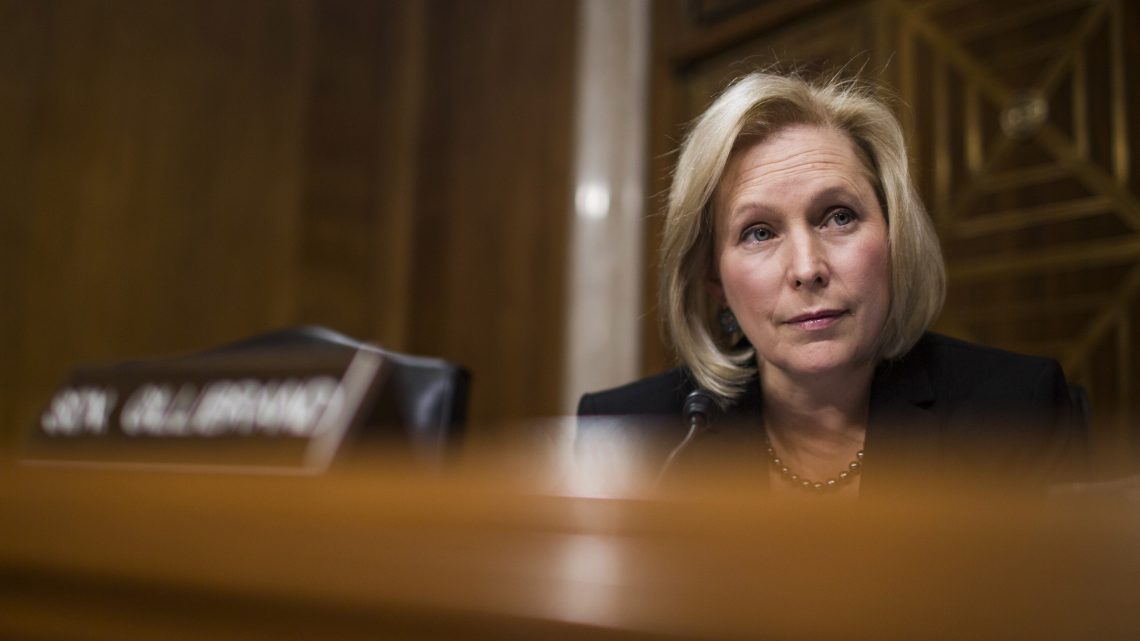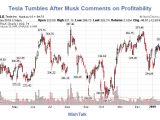
Will Progressives Buy Gillibrand’s Crusade Against Big Money in Politics?
January 18, 2019Less than 12 hours after the country watched her announce on The Late Show with Stephen Colbert she was launching an exploratory committee for president in 2020, New York Senator Kirsten Gillibrand stood in front of reporters, backdropped by family favorite the Country Diner in her hometown of Brunswick, and made it official:
"I'm running for president," said Gillibrand on Wednesday.
Gillibrand, who recently leased out a 5,000-square-foot office space in nearby Troy for her campaign, delivered brief remarks from handwritten notes that focused on her record of opposing the Trump administration and stressing her willingness to buck the party line. The senator also targeted special interests, political action committees (or PACs), and money’s influence as part of the problem in American politics, pledging to fight against their power.
"I think it's important for voters to know my values are never for sale," Gillibrand told reporters.
In what’s shaping up to be an overstuffed Democratic field, she’s clearly staking out a position as a crusader against deep-pocketed interests. But that position runs counter to Gillibrand's behavior in office for the last ten years as a senator and the two years before that when she was a member of the House of Representatives. She's taken in millions from corporate PACs in the past decade, including over $221,800 in the 2018 cycle before she banned donations from corporate PACs last February. A report from CNBC on January 4 that Gillibrand was checking in with Wall Street in advance of announcing raised further questions about the strength of her commitment to the progressive cause, especially among her doubters .
On Wednesday, CNBC identified one of the sources of support Gillibrand was checking in with as Democratic mega-donor Bernard Schwartz, an investment banker, who encouraged her to run. The senator's husband, Jonathan, is a venture capitalist and financial consultant, another connection to the world of finance that raises concerns about the believability of her recent tilt to the left. That all adds up to Gillibrand having what The Week's Damon Linker calls "the distinctive character of New York liberalism: hard left on social issues but relatively hands-off when it comes to financial regulations."
Jordan Uhl, a progressive activist who is currently focusing on efforts to de-platform Tucker Carlson by encouraging his advertisers to drop him, told VICE that Gillibrand’s connections to the financial sector could end up costing her with voters, even if she has the support of the country's financial elite.
"For someone who has done a relatively good job tacking left and championing the fight over income inequality, Gillibrand cozying up to Wall Street will come off to many progressive voters as inauthentic," Uhl said. "You can't seek approval from an industry that in 2008 sent the country into a tailspin and caused 4 million people to lose their homes and expect no pushback when running as a progressive."
A Gillibrand aide, speaking on background, took issue with that characterization of Gillibrand's meeting with Wall Street and called the idea that Gillibrand would seek approval from anyone outside of her family "offensive."
"What she did do, like all other candidates for president have and will continue to do, is talk to a diverse group of individuals to get their input and guidance in this major endeavor," the aide said. "This includes meetings and conversations with: civil rights advocates, LGBTQ advocates, a diverse group of influential women, entrepreneurs and job-creators, and many more."
Supporters of Gillibrand, like Zoey Jordan Salisbury, a communications professional from Seattle who volunteered for the Bernie Sanders campaign in 2016, dismissed concerns over the senator's record as unrealistic in the context of the senator's constituency.
"Kirsten Gillibrand is a senator from New York," said Salisbury. "If she wasn’t talking to Wall Street execs, including giving them a heads-up she might be leaving the Senate, she wouldn’t be doing her job."
Not everyone is sold on the promise that Gillibrand is making about her new approach to politics. Chris Churchill, a columnist for Albany paper The Times Union, said that the senator's past and how it reconciles with the present could be an issue as the race continues.
"Her shifts have been pretty dramatic and remarkable," Churchill told VICE, "given that she was a [conservative] Blue Dog Democrat and now tweets about intersectionality."
Gillibrand was asked about her past positions on immigration and guns Wednesday night on The Rachel Maddow Show and told the host that her liberal evolution made her a logical choice to bring the country together. "I can bring people to where I am," said Gillibrand, "because now I know the difference."
Gillibrand's past performance isn’t a definite indicator of her future behavior in office, said Salisbury, pointing out that politicians regularly change positions in response to pressure from voters. That reflects the power of the party base.
"If politicians can’t evolve, lest they fail some 'authenticity' test, then what is the point of calling our congresspeople?" Salisbury asked rhetorically. "Or protesting in the Senate?"
Of course, it's certainly possible that Gillibrand's turn against money in politics and outsized political influence is genuine. Since becoming New York's junior senator in 2009, Gillibrand has moved to the left on gun control and immigration, and has become a fierce advocate to curb sexual assault in the military. She's a strong anti-Trump voice in the Senate and can credibly claim the most overall record of voting against the president's priorities.
Gillibrand isn't afraid to buck the party establishment either. After she publicly called for former Minnesota Senator Al Franken to step down from office after allegations of misconduct and groping surfaced in late 2017, major donors told reporters they wouldn't support her. Gillibrand has weathered the storm from that decision ever since, and referred to the controversy in her remarks Wednesday.
"I had to do what was right," Gillibrand said. "And if, for some wealthy individuals, that makes them angry, that's on them."
Irrespective of her motivations, Gillibrand's shift represents a willingness to appeal to the Democratic base—an encouraging sign for progressives. Anoa Changa, an Atlanta-based Democratic activist, said that Gillibrand's pivot on money in politics shouldn't be taken as a net negative.
"It's politics," said Changa. "I think like a good politician she is responding to the current change in tide."
"I think some Democrats see an opening by appealing to the growing call for people to stand strong on issues that matter to people across the country," Changa added.
In a post on social media, Gillibrand did just that. "We’re launching a campaign powered by the grassroots, not corporate PAC money or federal lobbyists," Gillibrand tweeted Wednesday.
Changa, who's taking a wait-and-see approach to the entire 2020 primary, said that in general voters will have to assess the credibility of each candidate when it comes to walking the walk for left wing values. The perception that Gillibrand is not being entirely truthful with voters could hurt her.
"I think there are those who are tied to these establishment institutions and donors who will pay lip service to what people are saying they want," said Changa. "It is up to potential voters to build accountability into this process and hold people accountable for what they are saying they will do."
Sign up for our newsletter to get the best of VICE delivered to your inbox daily.
Follow Eoin Higgins on Twitter.


